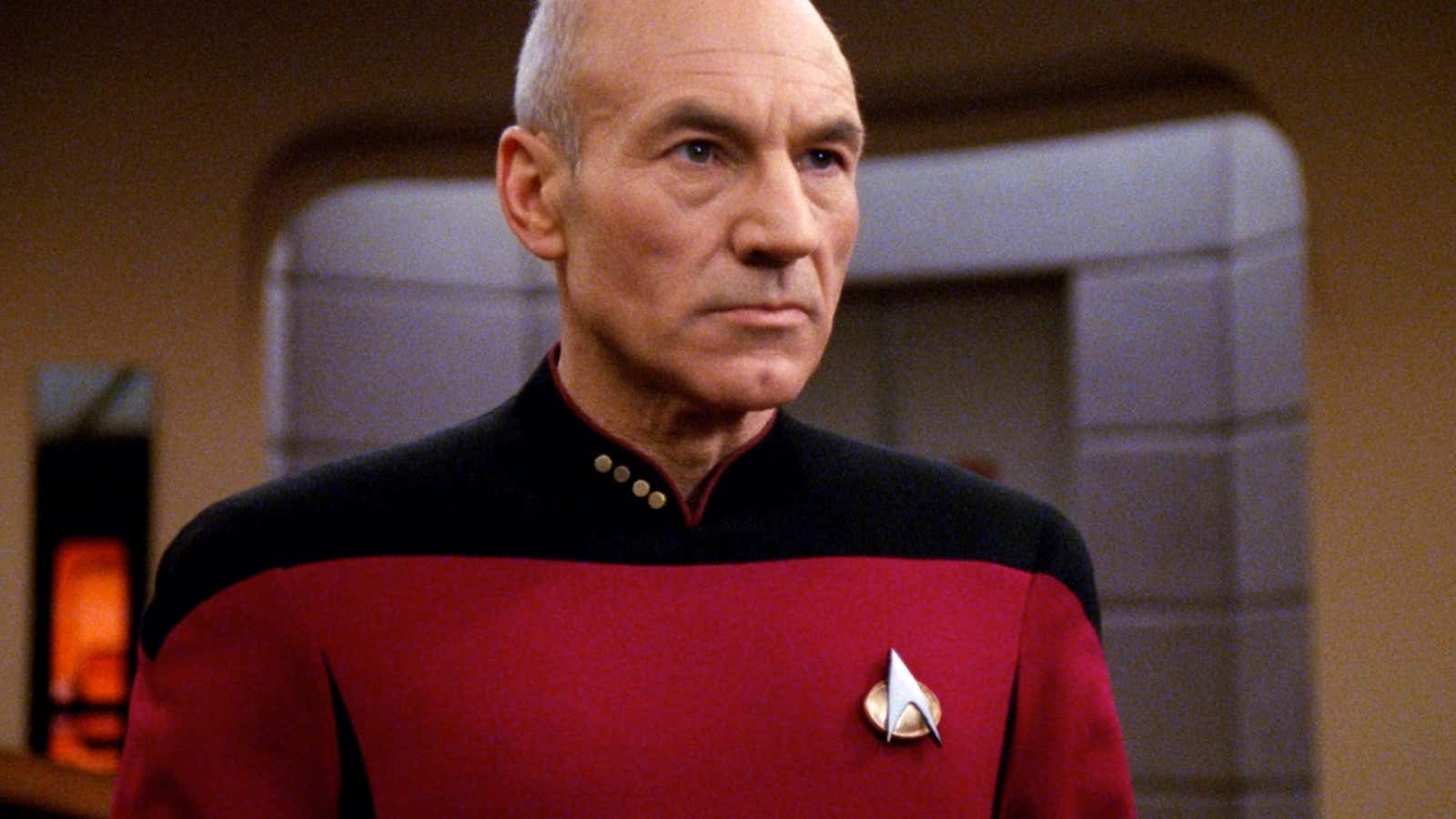On Sunday morning, I woke up in Ho Chi Minh City, Vietnam, still drenched in the haze of snails, smoke, and sweat from last night’s eating adventures. I made a cup of coffee with the Aeropress I lug around from country to country. Then I picked up my phone and read the good news:
Yup, Picard’s coming back to Star Trek! Of course, we don’t yet know what that means. What will our favorite cue-ball starship captain find himself doing out in the universe? Me, I’d like to see him as a star-hopping retiree, crossing items off his bucket list. Bird-watching on Armus IX? Check. Some light deuling on Neubilia Prime? Done! Episode after episode, our beloved baldie rattles about in a clunky shuttlecraft (which he’s nicknamed Vivian), the stakes low, the laughs comfortable, the aliens perpetually bipedal. It’ll put the Picard in picaresque.
Really, though, this is more about Star Trek coming back to Picard. The suits who own the rights know how popular the character is, especially right now—a dashing, morally incorruptible leader who believes in science!—and in this era of bingeing and reboots, they see risk-free dollar signs in the stars. Hell, I’ll watch the show (most likely on Netflix while I’m overseas, so I don’t have to buy the CBS “Watch the only show we have that’s good” pass), and I’ll probably enjoy it.
But: This is bad!
For a series predicated on the idea of boldly going where no man has gone before, Star Trek has become singularly unadventurous. Ever since The Next Generation ended, Star Trek has been at best a fleshing-out of unknown corners of a known universe, and at worst a retread of familiar terrain. Were the Cardassians ever compelling antagonists? How many times do we have to encounter Q and the Borg? Do we really need to fill in—or rewrite—all the historical moments that make up the illustrious history of the United Federation of Planets? Can we get along without goddamn Spock for once?
Look, I’m a Star Trek fan. Trekkie, Trekker, whatever. I like the show—its mix of political-philosophical ideals, actors who really sink into their characters, fabulous science, and questionable special effects. But Star Trek is at its best when it takes leaps. The Next Generation, for example, was brilliant in its conception: We don’t have to pick up where Kirk left off—we can jump 100 or so years into the future! We don’t have to worry about continuity, about solving old conflicts, about filling in the blanks. We can start something new yet familiar, keeping what we love and abandoning what doesn’t work any more. This wasn’t the actual next generation—it was two or three generations down the road. And it worked.
That’s what I want from Star Trek now, not this feel-good upcycling and historical revisionism. (OK, I liked Discovery and the JJ Abrams movies, but that doesn’t mean I think the franchise should continue down that path.) I want bold leaps of imagination—I want to see a future that shocks me with its newness, its strangeness. What will humanity become? How will we adapt to the rigors and traumas of space? How might we change the cosmos? Those are the questions that inspire me, that excite me, and that I think did the same for Saint Gene Roddenberry.
The universe is infinite, but Star Trek is proving itself sadly limited. It needs to engage with that realm of possibility and fulfil its ongoing, never-ending mission. Make it so, CBS. Please?
Of course, I’ve got a few ideas of my own about how that could be done… Call me, CBS—you’ve got my coordinates.
This article was originally published on Medium.
